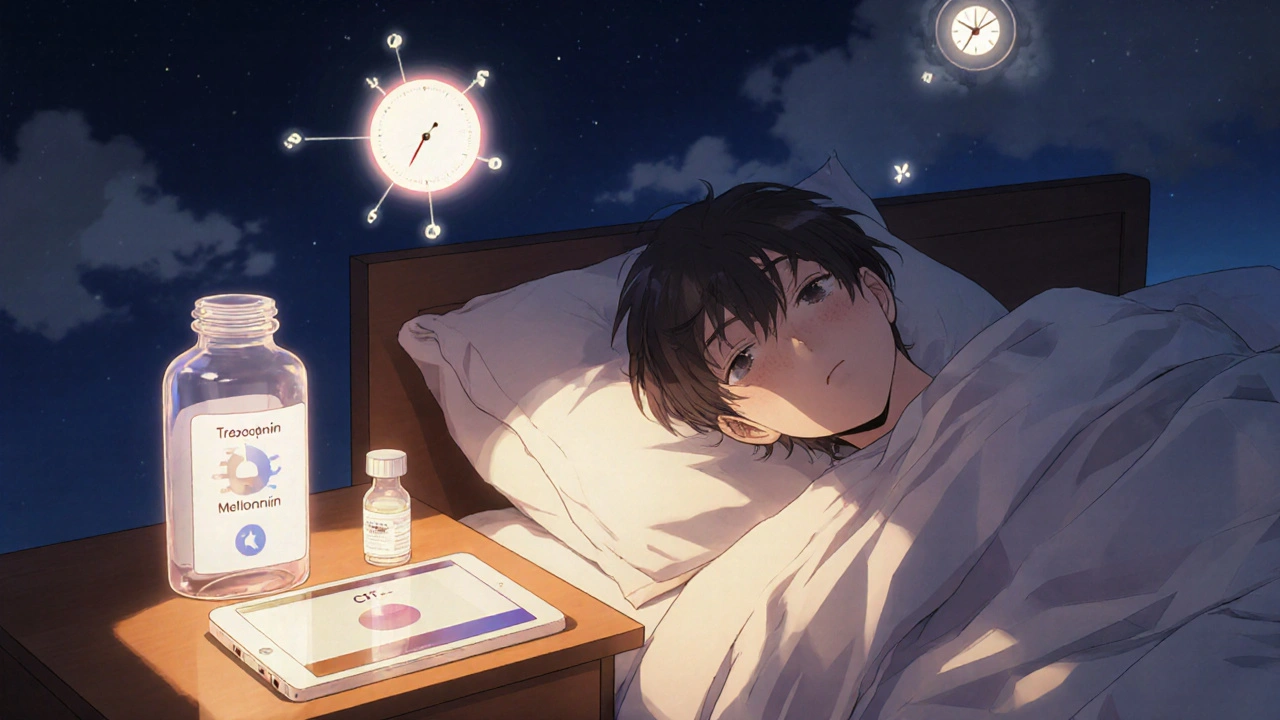Trazodone Alternatives: Safer, Effective Options for Sleep and Mood
When Trazodone, a serotonin antagonist and reuptake inhibitor used for depression and insomnia. Also known as Desyrel, it's often prescribed when other sleep aids don't work—but it’s not the only option. Many people switch because of drowsiness, dizziness, or low effectiveness. The good news? There are several alternatives that work just as well—or better—depending on your needs.
One major category of mirtazapine, an antidepressant that also promotes sleep by blocking certain histamine receptors is often preferred for nighttime use because it causes less next-day grogginess than Trazodone. Unlike Trazodone, which can sometimes trigger anxiety or palpitations, mirtazapine tends to calm the nervous system. Another option is doxepin, a low-dose tricyclic antidepressant approved specifically for insomnia. At 3 mg or 6 mg, it helps you stay asleep without the heavy sedation of older sleep meds. Then there’s melatonin, a natural hormone that regulates sleep-wake cycles, which works well for people whose sleep issues stem from circadian rhythm disruption—not depression.
Some people turn to benzodiazepines, short-term sleep aids like lorazepam or temazepam, but these carry dependency risks and aren’t meant for long-term use. If you’re dealing with both depression and sleep trouble, SSRIs like escitalopram, an antidepressant that can improve sleep quality over time might be a better fit than Trazodone alone. And for those who want to avoid prescription meds entirely, evidence-backed natural options like valerian root or magnesium glycinate can help, especially when paired with good sleep hygiene.
What works for one person might not work for another. That’s why the best approach is to match the alternative to your specific issue—is it trouble falling asleep? Staying asleep? Low mood? Or all three? The posts below break down real comparisons: from how mirtazapine stacks up against Trazodone, to why some people switch to doxepin after side effects, to how melatonin fits into a broader sleep plan. You’ll also find guides on managing insomnia without relying on sedatives, and what to ask your doctor when considering a switch. No fluff. Just clear, practical info to help you make a smart choice.

